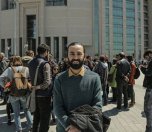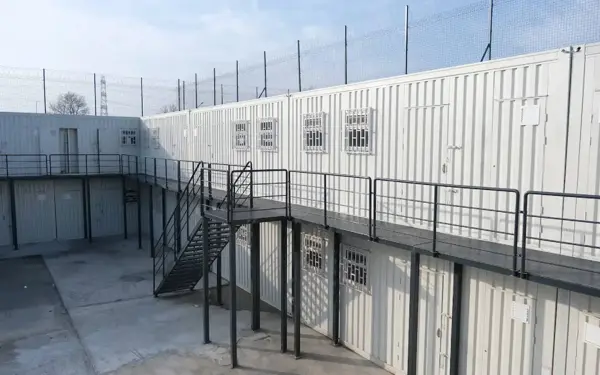*Sendika.org won't be silenced!
Click to read the article in Turkish
It has been five years since access was blocked to Sendika.org news site, 131 days since the Constitutional Court ruled that "freedom of expression and the press was violated" and three days since it ruled that the access block should be removed.
Despite these verdicts by Turkey's highest court, access to Sendika.org has not been opened yet.
Having been blocked 62 times, the website is currently online at sendika63.org.
While penal judgeships of peace issue access block orders within 24 hours after a complaint, they prevent the website's opening to access by ignoring the high court decisions.
Failure to enforce these decisions, which should be implemented urgently, censorship to a higher level.
Prof. Akdeniz: Court has not implemented the decision
Prof. Yaman Akdeniz from the Freedom of Expression Association, which brought access block orders imposed on Sendika.org to the court, said that siyasihaber.org, another news site, has also not been opened to access despite a Constitutional Court ruling 10 months ago.
"Access to Sendika.org was first blocked by the Telecommunication Communication Presidency (TİB) on July 25, 2015, after the AKP lost the necessary parliamentary majority for a one-party government in the elections on June 7, 2015. Despite that, it continued using different domain names.
"The Constitutional Court discussed the first access block decision four-and-a-half years after it was issued. According to the decision given in February, Sendika.org's freedom of expression and the press was violated. But Gölbaşı Penal Judgeship of Peace, which had given the access block decision, has not implemented the decision of the Constitutional Court.
"In fact, the court has to fulfill the Constitutional Court decision and open the site by lifting the access block. But they have not done this for more than six months."
The Constitutional Court acts quickly when the case is brought to the ECtHR
Citing the Wikipedia case as an example, Akdeniz said that the application to the ECtHR led the Constitutional Court to give a ruling. Wikipedia, which had been banned for nearly three years, was opened to access after an application to the ECtHR.
"When the ECtHR intervenes, the Constitutional Court begins to act quickly. So, both two decisions given by the Constitutional Court were not surprising.
About the second legal process, Akdeniz said, "We received a power of attorney from Sendika.org and appealed 50 different block verdicts from eight courts on the same day."
"However, as might be expected, all of our appeals were rejected. After that, we made eight applications to the Constitutional Court based on judgeships in October 2017 and demanded these applications be combined and examined under one application.
"After the first verdict of 'violation', the Constitutional Court, interestingly, gave the second verdict of 'violation' without requesting an opinion from the Ministry of Justice.
"Although there has not yet been a justified decision, I think that this verdict, given its scale, will indicate that access blocking is an indicator of a systemic problem."
"The local court can't examine Constitutional Court decisions"
"With the social media law, I think access blocking to websites has become political mauling," said Akdeniz.
"Unfortunately, we see that penal judgeships of peace don't take into account Constitutional Court rulings and ignore them. Failure to comply with the decision of the Constitutional Court, which is the highest court of Turkey, aggravates the ongoing violation day by day.
"Ten months have passed since the Constitutional Court gave a ruling of 'violation' for siyasihaber.org. Similarly, it has not been opened either. While the process is carried out in less than 24 hours when blocking, Constitutional court decisions are not executed. The duty of the judge is to abide by the high court decision and immediately send a formal letter to the BTK [Information Technologies Institution]. You don't have the right to examine and review [the Constitutional Court decision]."
Sendika.org: Access blocking is not legal but political
Ali Ergin Demirhan, a member of Sendika.org's editorial board, told bianet that the access block orders against their website were not legal but political and the Constitutional Court's decision against the access block came after public pressure.
"When the first blocking decision was given in 2015, we had said that it was not a legal decision and there was political pressure on us. A government that lost the election, that is, the AKP regime, which lost the one-party government, started a war right next to us in order to come to power again by preventing other parties from establishing a government. Dissenting newspapers were threatened in this period, and sites that did not apply self-censorship were blocked en masse.
"Although all of the access block orders were justified by Law No. 5651, we already knew that these decisions were political, and we have seen this in all of the rest of the 62 processes of blocking. Sometimes we were blocked not after but before an incident happened."
"Censorship is one of the biggest weapons of the government"
"While our applications to the ECtHR and the Constitutional Court, our application to the Guinness Book of Record, the international interest and the international media beginning to mention Sendika.org as a symbolic case slowed down access blocking, I don't think Sendika.org will be opened unless the political stance changes. Pressure is needed to change that strong political attitude.
"Because, we have been living in coup conditions for five years. One of the biggest weapons of the government of this coup is censorship. We have always continued and will continue Sendika.org but not seeing the reward for our struggle wears us down more than the access blocking." (HA/VK)










-132.jpg)


132.jpg)





